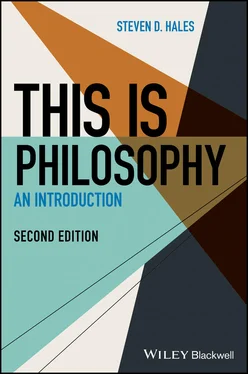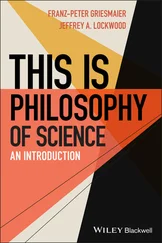Every day newspaper headlines tell of cases just like these, where people are acting in their own self-interest without regard for others. If you think that Parker and the Garridos are moral monsters, brutal narcissists who have no place in a civilized society, then you should doubt that ethical egoism is the correct theory of morality. After all, under ethical egoism their actions were not merely permissible, but, since they served to advance their own interests, their positive moral duty. Remember, the thesis of ethical egoism is that everyone should always act in their own self-interest, which the Garridos and Parker apparently did. When the kidnapping and sexual enslavement of children and the theft of painkillers from cancer victims turn out to be anyone’s moral duty, one might reasonably question the moral theory at hand.
A defender of ethical egoism might argue that in fact the Garridos and Parker failed to act in their own self-interest, on the grounds that they were caught, convicted, and sent to prison. Surely imprisonment was not in their self-interest. That’s why their actions were wrong; they led to negative consequences for themselves down the road. However, such a defense means that kidnapping, rape, and theft are morally heinous only if you are caught–if you get away with your crimes, then you did nothing wrong after all. Such a defense goes against the intuition that it would have been far worse for Phillip Garrido to continue child rape and enslavement, far worse for Kristen Diane Parker to have continued to infect people with Hepatitis C and steal pain meds from cancer patients. If the world was made better by their capture, then the egoist defense does not work.
Objection 2: subjectivity.
The second objection to ethical egoism is that it makes morality wholly subjective, in just the same manner as matters of taste. Many people think that if anything is purely subjective, then taste is. Thus there is no objective fact of the matter about whether broccoli tastes delicious, or whether roses smell better than lilacs. There are simply personal preferences; some like roses better, others lilacs. It is hardly a matter over which we might have violent disagreement, or, really, any meaningful disagreement at all. You like one and your friend likes the other. You acknowledge each other’s preferences and move on. How exercised can one really get about Coke vs. Pepsi, or what your favorite color is?
If ethical egoism is correct, then morality is just as subjective as matters of taste. Suppose Joe thinks eating babies is morally wrong and Jane thinks eating babies is not only morally permissible, but delicious to boot. As in the cases of taste, there is no true disagreement between Joe and Jane–they are doing no more than expressing the preferences they have, in light of the goals and desires they each possess. Joe advances his interests by not eating babies, and Jane advances her (presumably culinary) interests though cannibalism. Joe is doing the morally right thing (for Joe) and Jane is doing the morally right thing (for Jane). Therefore they are in no position to criticize each other. The most each could say is “I wouldn’t do what you’re doing–but by all means, carry on.” The ethical egoist credo is live and let live, or, perhaps de gustibus non est disputandum 12. Each is acting to pursue their own self-interest, which is exactly what ethical egoism says they ought to do. If you think that it is entirely reasonable and morally fair to criticize Jane for her cannibalism, then ethical egoism is not the correct moral theory.
Objection 3: equal treatment.
The third objection to ethical egoism is that it violates an intuitively plausible constraint on moral theories, namely the principle of equal treatment.
Principle of equal treatment: Two people should be treated in the same way unless there is a relevant difference between them.
The Principle of Equal Treatment does not require that everyone be treated alike; it allows variable treatment. Discrimination gets a bad name because people tend to conflate reasonable discrimination with unreasonable discrimination. If you were choosing up sides for a basketball team, no one would expect you to pick an overweight 4´11˝ senior citizen over a 6´11˝ college athlete. Fitness, age, and height are all relevant criteria for basketball performance. Likewise if you’re hiring someone to be the pastor of your church, it is reasonable to expect that a successful candidate will follow that religion. Atheists need not apply. These are cases of discrimination–treating people differently–but there are relevant differences that make the varying treatment permissible and expected.
The cases in the preceding paragraph are judicial discrimination. There is also prejudicial discrimination, which is more pernicious. If one picks basketball players on the basis of religion, or hires a pastor on the basis of height, then that is treating people differently when there is no difference among them relevant to basketball or job performance. It is because those cases violate the Principle of Equal Treatment that we tend to regard them as cases of immoral treatment.
The problem for ethical egoism is that egoism counsels each person to treat everyone differently from how they treat themselves, irrespective of whether there is any relevant difference. As an ethical egoist you will act to advance your own interests regardless of how that may affect the interests of others. However, the Principle of Equal Treatment states that you should treat two people the same unless there is some relevant difference between them. What, then, is the relevant difference between you and everyone else that you should give no weight whatsoever to their preferences? Ethical egoism implies that you are so unique and special that you ought to treat every other person differently from how you treat yourself, since you should care only about promoting your own interests. You’re you; that’s true. But what makes you so special? In fact, runs the objection, none of us is so special that we should each treat ourselves completely differently from how we treat every other living creature. In short, ethical egoism is just a form of prejudicial discrimination, and for that reason should be discarded.
If you think the costs of ethical egoism are too high for its benefits, then you should consider other moral theories before making a purchase. Here’s another popular contender.
1.4 Moral Relativism (Is Morality Just How Society Says We Should Act?)
According to ethical egoism, morality is no more than your own code of behavior, designed to advance your own goals. Perhaps morality should be understood not on the personal level but on the social level. Here are some representative slogans of this idea, the idea of moral relativism .
When in Rome, do as the Romans do.13
What happens in Vegas stays in Vegas.14
“Each man calls barbarism whatever is not his own practice; for indeed it seems we have no other test of truth and reason that the example and pattern of the opinions and customs of the country we live in” 15 (Michel de Montaigne, 1580).
Moral relativism, as presented here, is ethical egoism writ large. With ethical egoism, morality is relativized to individuals; but with moral (sometimes called cultural ) relativism, moral truth is relativized at a broader scale to cultures or societies themselves. To some extent, debates over moral relativism are just analogues to the pros and cons of egoism.
To start with, notice that there is a difference between descriptive relativism and moral relativism, as follows:
Descriptive relativism: beliefs about morality and the values people possess vary across cultures divided by times and places.
Читать дальше












